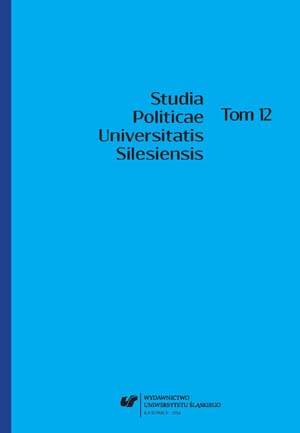Teoretyczna i metodologiczna koncepcja szkoły chicagowskiej w nauce o polityce
Theoretical and methodological concept of the Chicago School in the political science
Author(s): Zbigniew KantykaSubject(s): Politics / Political Sciences
Published by: Wydawnictwo Uniwersytetu Śląskiego
Keywords: concept of the Chicago School; political science; sociological orientation; dilemmas of political science
Summary/Abstract: As part of the research methodology in the social sciences, sociological orientation, created and developed in the 1920s and 1930s in Chicago, achieved great importance and publicity. Its assumptions and achievements were thoroughly discussed, were and are often cited in the scientific literature. While relatively rarely mentions can be found of the existing at the same time, largely separate institutionally and personally, Chicago School in the political science, the creators and participants of which attempted to redefine the goals and methods of studying political reality. The background for new proposals were normative assumptions dominant in the first decades of the 20th century, of the so-called classical political science, very different from the model of empirical science focused on the search for a general theory which started to become a standard in all disciplines. A new scientific discipline, emerging at the turn of the century, devoted to the study of politics was primarily inspired by the achievements and traditions of such sciences as political philosophy, legal studies or political history. It influenced obviously its normative character by directing the interest of researchers primarily to considerations related to the legal and constitutional solutions and analysis of the formal dimension of political institutions. During this period, the real world of politics remained outside of analyses — thus, differently than in the 19th century sociology with positivist orientation, no particular attention was paid to the importance of scientific data obtained by using empirical methods. My text contains a concise presentation of the scientific profiles of the main representatives of the Chicago School in the political science — Charles E. Merriam, Harold D. Lasswell, and Harold F. Gosnell. Their theoretical and methodological ideas on the methods of study and mechanisms of political reality, which they used in their academic activities and research work, in an unquestionable way influenced the development of modern political science. As far as the methodology is concerned, the article is based on a direct analysis of key source texts and on the attempt to interpret their contents and significance of the proposals contained therein, in the context of the methodological dilemmas of modern political science.
Journal: Studia Politicae Universitatis Silesiensis
- Issue Year: 2014
- Issue No: 12
- Page Range: 13-26
- Page Count: 14
- Language: Polish

